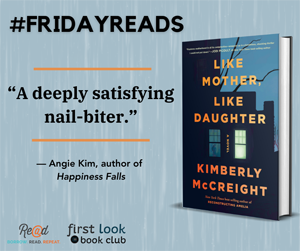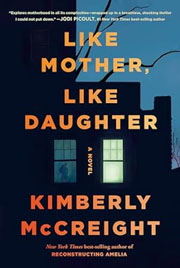
| Mon
Subscribe
| |||
Dear Reader, I'm usually a quick study, but this two-people-facing-off thing, their arms moving up and down, each calling out in a syncopated beat, "Rock, Paper, Scissors"--I've never understood it. And I've never asked, because I didn't want to look foolish. Why wouldn't you always just make a fist on that third downward swing of your arm? Why would you want to be anything else, but a rock? A rock would pulverize anything. Scissors cuts paper and paper just sits there. So wouldn't paper always come in last? Okay nothing ventured...no chance of looking stupid...so I took the risk. I asked. And do you know what? I pestered seven people before I found a woman who would explain it to me, although I did have to endure her, It's so obvious, why would you even ask me look, before she rattled off, "Rock smashes Scissors, Scissors cut Paper, and Paper covers Rock." But I argued that the paper covering the rock concept didn't work for me. I mean, it seems like the rock could just sit on top of the paper and hold it down--like I used to do to the skinny boy, who lived next door to us, when I was a kid. Now the woman was looking at me like I was as dumb-as-a-rock. Yeah, I know. I'm way overthinking the whole thing. I think I'll stick to drawing straws. Thanks for reading with me. It's so good to read with friends. Suzanne Beecher P. S. This week we're giving away 10 copies of the book Like Mother, Like Daughter: A Novel by Kimberly McCreight. Click here to enter for your chance to win.
| |||
Like Mother, Like Daughter: A Novel | |||
|
Aidan was off filming for much of Cleo's early years. He missed her colic and the four times she needed stiches and the months of night terrors and the potty training and the time her impossible third- grade teacher made her cry. He was there, though, for the bright patches in between—the holidays and the parties and the awards. For the part where you say 'this' is why people have a family. To run a single finger through the icing on the cake of domesticity that I baked daily from scratch. But I was there for all of it despite my grueling work hours, which required the use of two nannies in separate shifts. Because you could outsource caregiving, but you could never outsource being a mother. And now here was Janine making a beeline for me, ready to remind me of all the ways I'd screwed up in the end anyway. "Janine!" I called back, my voice high-pitched and frantic instead of cheerful like I'd intended. I'd forgotten entirely that I'd actually heard of this restaurant from Janine—I was still on an old group email that occasionally went out, Park Slope moms, pooling recommendations. It had not occurred to me that I might risk running into her here 'with' Doug. Of course, Janine didn't know Aidan and I were separated. I couldn't risk Annie finding out and spilling it to Cleo. "Oh, my goodness, Kat, how are you?" Janine asked with an easy laugh and a wave of her small silver clutch. She looked around. "Is Aidan here?" "No, I'm meeting a client." Janine's eyes flicked up mischievously. "A client, huh? This place is awfully cozy for that." "Is it?" I looked around now myself. She raised her eyebrows, but I could see her decide not to press. "Well, a friend of mine from college works at Tom Ford, and we had way too much wine at their show. So now we're going to pretend to eat something and try to sober up. Or maybe we'll have more wine." Her cheeks were flushed and her eyes glassy. Then it was like she remembered something. "Oh . . . How is Cleo, by the way?" "Cleo?" "Oh, sorry. You look like a deer in headlights." Janine barked out a laugh, then leaned in conspiratorially. "I know things have been a little . . . dicey with that, you know, boy situation . . ." She rolled her eyes. "Boys are always the problem." Were Annie and Cleo back in touch? Or . . . had Cleo reached out to Janine to talk? Cleo had always been enamored with Janine. For an unfortunate second, I pictured the two of them cozying up across the street, having the kind of mother-daughter chats that we hadn't had in years. "Yes, Kyle . . ." Janine grimaced. "Right. Anyway, I think you did the right thing." But it sounded like maybe she thought the opposite. I forced a smile. "Not sure Cleo agrees." "What do they know?" Janine shrugged. "The real problem is that we agreed to let them go to college so close to home. Annie is back asleep in her childhood bedroom a couple times a week. I mean, I love the kid, but come on. Out of the nest already!" Of course Annie would be home too much. Annie and Janine were always inseparable, having coffee on their stoop on weekends or heading to yoga class, giggling. And this was back when Annie was in high school. What teenager wants to hang out with their mom? "Come on!" Janine's girlfriend called out. "They have our table!" "Gotta run." She leaned in and pressed her cool, smooth cheek to mine. "You hang in there now. And don't worry about Cleo. They drive us insane, but that's so they can be fine. It's like the circle of life. Or Darwinism. Or something." She walked a few steps, then turned back. "And, hey, come across the street. Have a glass of wine and vent. It's been too long." I nodded and smiled. "Sounds great." My phone buzzed in my bag just as Janine disappeared into the crowd. Shit. Vivienne—that was my thought as I groped for it. A couple hours ago, the New York Times reporter had left word, officially requesting comment on the story the paper intended to run. The clock was now ticking. We were going to need to respond. But the text wasn't from Vivienne. Hi, Kat. It's Jules. Can we talk privately? it read. Away from the office? I stared at the unfamiliar number. Jules and I were in constant contact—we were never really off the clock; even on weekends she fielded my calls. But this number wasn't programmed into my cell, and I had all of hers: home, cell, her sister. I was suspicious, of course. I was always suspicious. Texts, emails—you never really knew who they were from. Say little, assume the worst. That was my policy in general. New number? I texted back. Oh, sorry, my work cell is dead. Can we meet? Sure, I wrote back, still not convinced. How about tomorrow afternoon? We could step out for coffee? This was a surefire double check, since I knew that Tuesdays didn't work for Jules. She was a single mother to a two-anda-half-year-old daughter with significant developmental delays that required a vast array of therapies: speech, OT, PT. Jules had somehow been able to keep most of the weekly appointments contained to a single afternoon—Tuesdays. Okay, she wrote back. That's fine. I can have a friend pick up Daniela and take her to therapy. It certainly sounded like Jules. Or maybe we should talk now on the phone? she added. I'm a little worried about waiting . . . Not wanting to wait until the next day? Talking outside the office? It must be a personal problem. Please, Kat. It's important; otherwise, I wouldn't ask. Will call in two seconds. Let me step outside. Out on the sidewalk, I texted Doug, in case he somehow arrived without my noticing. 'I'm outside on a call. Be done in a minute. You' 'close?' I waited a beat. No reply. Even now, he was only a couple minutes late, but even that wasn't like him. What if he really was standing me up? Jules answered right away. "Thank you," she said. "I didn't—I wasn't sure who else to call." "Jules, what's wrong? Oh, wait, did Vivienne unleash on you? I'm sorry, she can be a lot—" "It's not Vivienne." Her voice was quavering. "Whatever it is, I'll try to help." There was a crackling, tinny sound on the line. "Shoot, Jules, I think you're breaking up." "I don't hear anything," she said. "You hear something?" "Oh, maybe it's me. I'm—" "What do you hear?" Jules demanded. "Exactly." "Oh, it's just . . . It's gone now. It sounded for a minute like the call was breaking up." "You know what, Kat—I'm sorry," Jules said. Her voice had turned crisp. "I'm actually okay for now. I think I was overreacting." "Jules, come on . . . I can tell you're not fine. Talk to me." "I've got to go. Daniela needs me," she said. "I'm sorry I bothered you, Kat." And then she was gone. When I called back, it went straight to voice mail. I heard the ping of a text coming in as I was leaving a message. "Oh, that's probably you texting. Call me back when you can, though? I want us to talk." I hung up to read the text, also from a number I didn't recognize, an unfamiliar 332 area code. It's your past calling. Almost all the way caught up to you. I hit the side button on my phone and closed my eyes as the screen went black. No. I'd misread that. I'd misunderstood. And yet, my mind still flashed to the small pocketknife I carried in my bag all these years later for protection. I resisted the urge to dig it out. And then I was there again, all those years ago, washing my hands again and again in the icy water in Haven House's downstairs bathroom, trying to scrub clean the beds of my nails. It had been all over my clothes, too, soaked through my gauzy pink shirt. The blood was everywhere. I bolted awake the next morning at the ping of a text. I was hoping it was Doug, explaining why he'd never shown up, but I was afraid it might be another ominous, anonymous message. Sent from, I'd since figured out, New York's newest area code. Or, more likely, some kind of burner app. I'd seen enough clientrelated texts to know that the apps generated similarly random numbers, always brand-new area codes. But it was Lauren. Call me when you're up. I dialed her right back. "Don't worry, I'm okay now," I said groggily. I'd called her on my way home the night before. I'd ranted for a while about Doug and Janine, leaving out the part about the anonymous message. "Kat, I have some . . . I think I know why Doug didn't show up last night." "Because he's a jerk?" I said. "No. Are you sitting down? It's not good." Lauren's tone was somber. "What?" "You can . . . Maybe you should read it for yourself. I'll send you the article." Three little dots appeared and then a link to the morning's New York Post: "Bronxville Pharma Executive Dies in Tragic Accident." I clicked on it and then cupped my hand to my mouth. Fifty-two-year-old Doug Sinclair's car had smashed into a tree on Midland Avenue near the Yonkers-Bronxville border. His twenty-year- old daughter, Ella, a junior at Amherst, was now an orphan. The pictures of the mangled car were horrifying. And so was the unavoidable truth: Doug was dead. Love this book? Buy a copy online.
| |||
| Mon | |||


